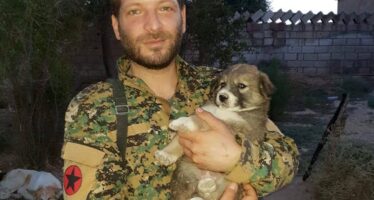Coronavirus and economic crisis hit Amed
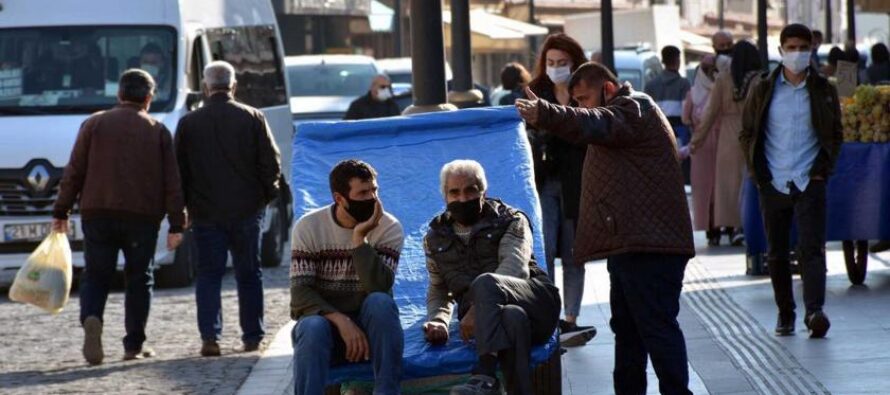
![]()
Amed (Diyarbakır) is one of the most important cities in the Middle East, Turkey and Kurdistan.
It is the heart, breath and beauty of the region … Amed, known for its historical mosaic of peoples and story of resistance. It is known for its narrow streets, intertwined texture, the warmth of its people, the thousands-year old walls, Hevsel Gardens, Kırklar Mountain where lovers meet, Ulu Mosque, the Four-Legged Minaret. It is hidden in the heart of Mesopotamia, in the silence of the Tigris River, in the glory of its walls, in the presence of the Hevsel Gardens. You touch it, you love it, you fall in love with it, you enter its secrets.
A special kind of love
You cannot explain Amed with plain sentences. It moves even the most insensible of men. It brings emotion to people. Amed is another city with its love, history, splendour and beauty.
Wrapped in Pain
This city so warm, so full of love nowadays has turned into a city of some sadness, pain and silence. Even if it has not disappeared, pain and sorrow are felt. During the “Self-Government” process in the region in 2015, many cities, especially Sur, were demolished, historical textures were destroyed, people were displaced. Turkey in 2016 witnessed a so-called “coup attempt” and covered by that a heavy repression was carried out. Human rights, democracy and freedoms have been hit hard. People were taken into custody, arrested, from their jobs and houses. The co-mayors of many municipalities, HDP deputies, lawyers, journalists, writers, business people, women, those who wanted peace and demand freedom were imprisoned one by one. The government put pressure on every segment of society, they wanted to silence and isolate them.
To make matters worse and add to repression and undemocratic practices in Turkey came a major economic crisis and the latest Covid-19 (coronavirus) pandemic. Amed is living serious problems, as is Turkey and the whole.
Mourning
The people of Amed, tradesmen, workers, labourers were left alone to deal both with the Coronavirus and the economic crisis. Like the people of the city, the historical walls and the Tigris River are also looking sad. While people mourn what they lost in the crisis and because of the virus, Amed is mourning those who no longer come to visit, the people who are no longer walking its streets, that now remained empty.
Workplaces Closed
If we take a look at what the economic crisis and the coronavirus pandemic meant for Amed, we see that because of the crisis, 90 percent of the tradesmen’s workplaces are closed. As if the crisis was not enough, the economy came to a halt with the closure of cafes, restaurants and workplaces, and hundreds of thousands of people in the city were left unemployed. The most crowded streets of Amed became silent with the coronavirus, the workplaces that did the most work in the historical Sur district closed down, people found themselves in a great depression while talking about the economic crisis and the cost of living. Tens of thousands lost their jobs, hundreds of thousands of people were left unemployed.
35,000 People Unemployed
While 850 tradesmen registered with the Diyarbakır Union of Chambers of Tradesmen and Craftsmen (DESOB), which has 60,000 members, were forced to close their workplaces, 35,000 people ended up unemployed due to the implementation of the pandemic measures. Again, many important hotels in the city were forced to close. There is a big political repression in Turkey, isolation, anti-democratic practices. While people cannot even enjoy their most basic rights, they are experiencing a great depression due to the economic crisis and the coronavirus pandemic. The reflection of the economic crisis on society is something that will have enormous and severe consequences.
No Help
Despite this heavy situation, the government of the AKP did not give any support to the shopkeepers and the people. Like in Amed, people everywhere have to take care of themselves. The AKP increased the interest rates, and the prices of food and catering increased significantly with the crisis. However, a very small increase was made in the salaries of workers. Millions of people in Turkey are working on a minimum wage and the minimum wage is just 500 Turkish Lira (around $70). However, those working for the minimum wage in Turkey can have monthly charges of up to 2,826 per month (380 dollars).
DISK: Workers’ Rights Are Not Protected
Turkey’s Revolutionary Workers Unions Confederation (DISK) Diyarbakır Branch No. 2 Chair, Hasan Hayri Eroğlu, said: “Together with the pandemic came rampant unemployment. There are 3 and a half million people working for the minimum wage. There are more than one million people working below the minimum wage in Turkey. Unemployment has become too high during the pandemic. The industry in Amed is not very developed, workers working in the workshops and in certain business lines have also become unemployed because their workplaces have been closed. People working in restaurants and cafes were laid off. Employment and labor law are being prepared to support the employer. The government does not protect the workers’ rights and the employer can actually dismiss people without paying them any compensation. The year 2020 was very bad. The year 2021 does not show any hope for workers either. Turkey is third among the countries with the lowest minimum wage in Europe.”
Number of Coronavirus Cases Decreased
Turkey in recent weeks has taken a number of measures to counter the coronavirus outbreak. Accordingly, Saturdays and Sundays there is a total lockdown, while on weekdays there is a curfew in place after 9 pm. Although the number of cases has decreased since the curfew has been put in place, the situation is still very serious. Coronavirus patients stay in Gazi Yaşargil Training and Research Hospital and Dicle University Hospital in Amed. Before the restrictions, there were an average of between 1,500 and 2,000 cases registered in the city every day, now the number of cases has dropped to 150.
The Government Decides Everything
Health and Social Service Workers Union (SES) Diyarbakır Branch Co-Chair Şiyar Güldiken said: “The number of those who are treated in hospitals in Amed is 150. There has been a considerable decrease compared to the new year. We saw the positive results of the lockdown on weekends. However, it is not clear how long this will continue. The government does not involve civil society organizations and professional organizations in decision-making. As with everything, it is the government that decides now on vaccination. The government determines who will receive the vaccine. The vaccine should first be given to healthcare professionals, then to those over 65 and those with chronic conditions. But the government ignores the demands of the social sector. Because of all this, we are faced with a serious public health problem.”
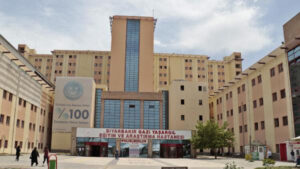
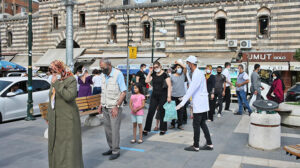
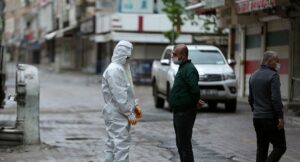
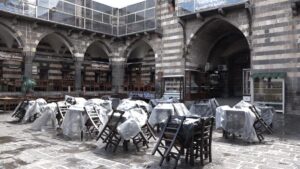
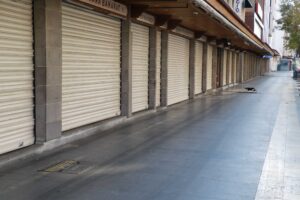
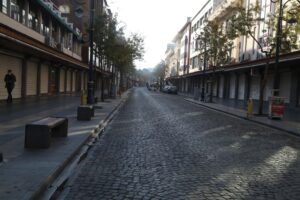
Related Articles
Letter from slain International Volunteer Lorenzo Orsetti
![]()
“These are difficult times, I know, but don’t give in to despair, don’t ever abandon hope, never! Not even for
Son unos irresponsables – Adolfo Muñoz Sanz Secretario General de ELA
![]()
Gara. Adolfo Muñoz denuncia en su artículo la sumisión de la clase política
Non ho brindato con champagne però….non aspettatevi che piangiamo – Floren Aoiz
![]()
Gara. Hanno condannato Garzon. Non lo hanno messo in carcere, non l’hanno tirato giù dal letto alle prime luci dell’alba,

